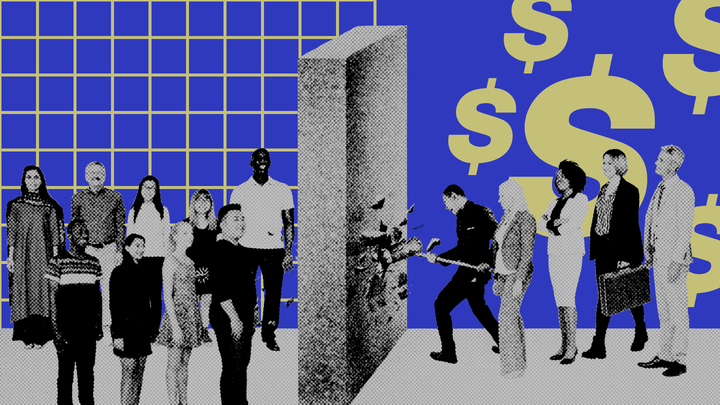By Deo Mwano
In today’s rapidly shifting social and economic landscape, non-profit organizations face immense pressure. With reductions in federal social service programs and declining foundation donations — due to economic uncertainty and inconsistent political priorities — many nonprofits are operating from a place of scarcity rather than abundance.
Unfortunately, this scarcity mindset often breeds competition rather than collaboration, particularly among organizations serving similar populations. Instead of uniting around a shared mission, we see territorialism, gatekeeping, and efforts to outshine one another to secure limited resources. This behavior stifles progress and undermines the very communities we aim to uplift.
The Collaboration Opportunity
There is a better way forward — one rooted in shared mission alignment and community-first thinking. When nonprofit leaders commit to viewing their organization's purpose as part of a larger ecosystem of support, they unlock the potential for genuine partnerships.
Rather than focusing on what your organization gains, ask instead:
What does the community gain from our collective work?
How do we create continuity and avoid duplication of services?
Where can we partner to increase capacity rather than compete for attention?
This mindset shift allows leaders to prioritize impact over recognition, trust over self-preservation, and fair practices over control.
What We’re Seeing at DMC
At Deo Mwano Consultancy (DMC), we’ve worked with numerous cities, towns, grantmakers, and community coalitions to design collaborative programs that bridge nonprofits around shared goals. In these engagements, we often help multiple organizations align their strategies and services to increase impact without sacrificing identity or purpose.
A key ingredient in this success is transparency — especially when it comes to funding. In projects where monetary resources are clearly communicated and expectations are set early, we see greater openness to collaboration. When everyone knows what’s at stake and how success will be measured, organizations are more willing to align and contribute toward shared solutions.
But even in well-funded projects, challenges arise when the conversation shifts to resource distribution. While many leaders agree conceptually on the importance of collaboration, competition re-emerges when it's time to determine how funds are allocated.
What Nonprofit Executives Should Be Asking
If your organization serves the same population and offers similar services as others in your area, now is the time to ask hard but necessary questions:
Why are we uniquely positioned to do this work?
Are our clients choosing us for specific reasons, or out of convenience or habit?
If we stepped back from this service area, could another organization serve our community just as well—or better?
Do we have the internal capacity to do this work with excellence and consistency?
The answers to these questions offer crucial insights. They can help guide decisions about where your organization should double down, where to partner, and where to relinquish programming to others with stronger infrastructure or greater reach. And most importantly, these decisions should be informed by the community itself — through listening sessions, surveys, and authentic dialogue with the people you serve.
Collaborate to Scale, Not to Survive
The truth is, there are not enough resources to allow every nonprofit to do everything. The only way to make meaningful, lasting change is through strategic collaboration — built on humility, clarity, and trust.
As an executive leader, your role is to model and initiate this change. Start with open conversations. Push past the fear of losing relevance. And stay focused on the collective progress of the communities you serve.
When nonprofits collaborate with intention and integrity, communities don’t just receive services — they thrive.
The DMC Community Transformation Team brings over 25 years of combined experience, collaborating with nonprofits, cities and towns, grant makers, and other nonprofits to make a positive impact. DMC has successfully created programs and campaigns that bridge diverse communities, addressing root causes of problems and facilitating sustainable solutions.

